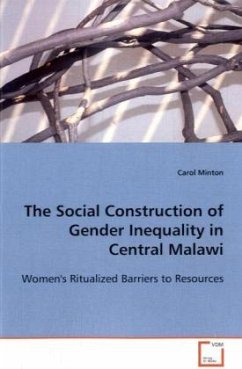The social psychology literature is limited in its
treatment of unequal gender relationships that
develop within specific social contexts.
Additionally, the institutional factors that may
underlie and constrain interaction between men and
women have often been ignored. This study
critically looks at the routine, schema-driven
behaviors that were brought to the central region of
Malawi before Colonialism. It is argued these
interactive social processes helped create and
sustain an array of ritualized symbolic practices
that have helped perpetuate the unequal access to
resources for women. Employing a theoretically
driven multi-method approach, this study utilized
focus group sessions, in-depth interviews, content
analysis of historical and contemporary literature,
and participant observation. The results suggest
various symbolic patterned behaviors of the women in
the central region of Malawi have helped to
reproduce and perpetuate gender inequalities.
treatment of unequal gender relationships that
develop within specific social contexts.
Additionally, the institutional factors that may
underlie and constrain interaction between men and
women have often been ignored. This study
critically looks at the routine, schema-driven
behaviors that were brought to the central region of
Malawi before Colonialism. It is argued these
interactive social processes helped create and
sustain an array of ritualized symbolic practices
that have helped perpetuate the unequal access to
resources for women. Employing a theoretically
driven multi-method approach, this study utilized
focus group sessions, in-depth interviews, content
analysis of historical and contemporary literature,
and participant observation. The results suggest
various symbolic patterned behaviors of the women in
the central region of Malawi have helped to
reproduce and perpetuate gender inequalities.








